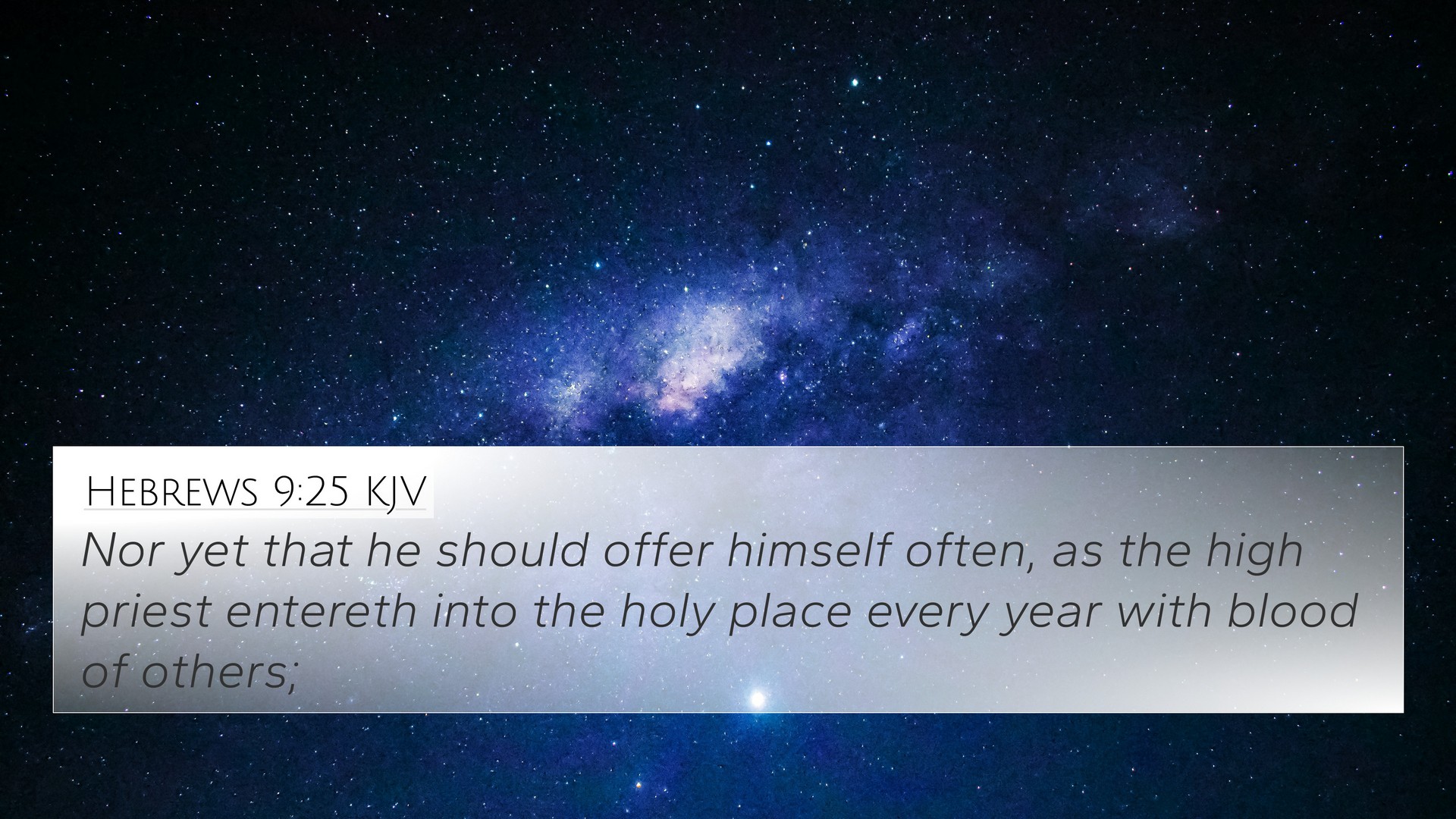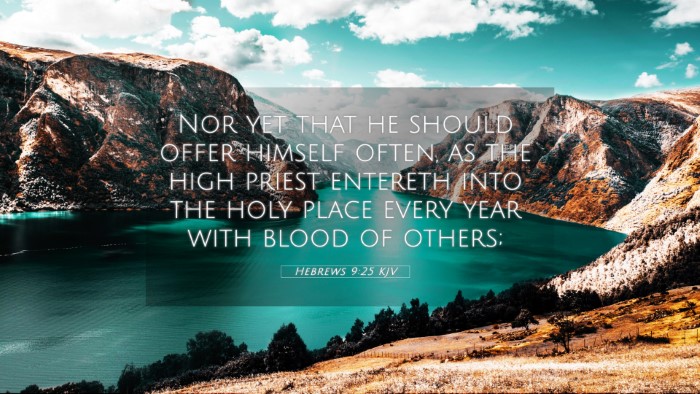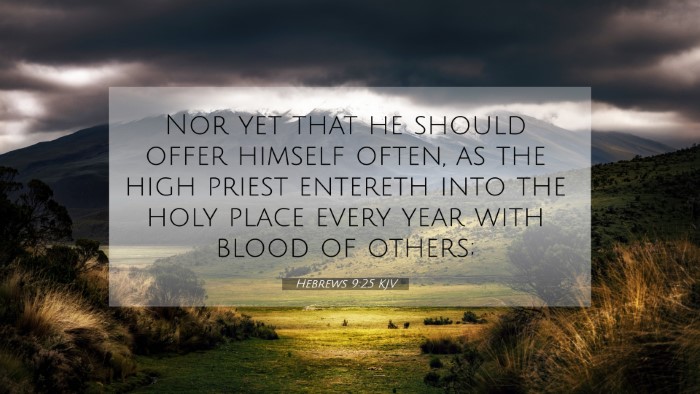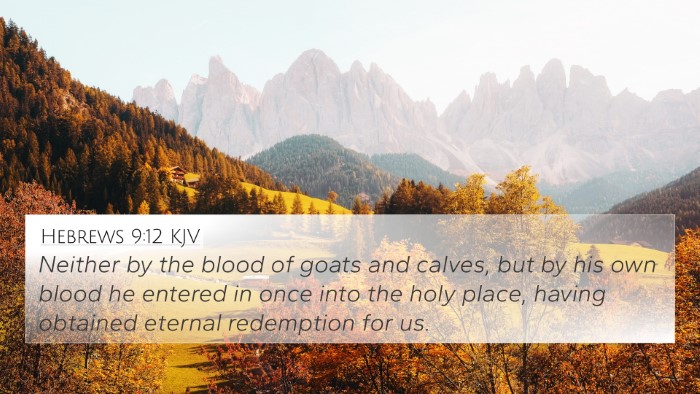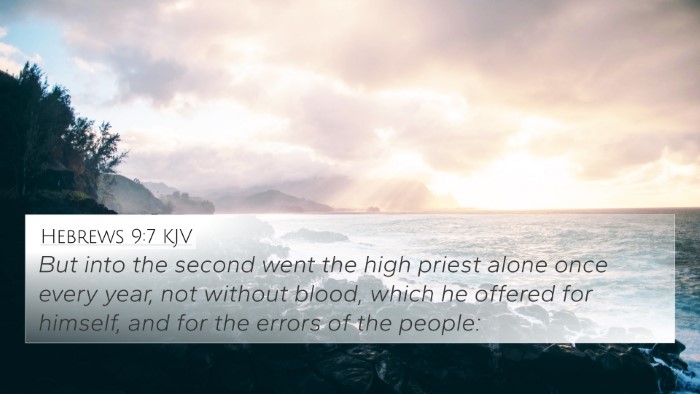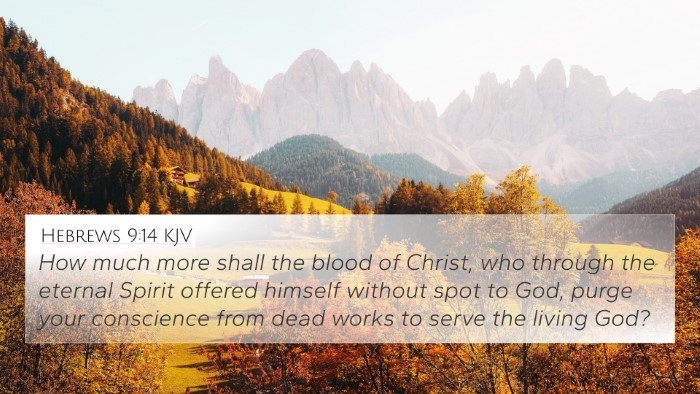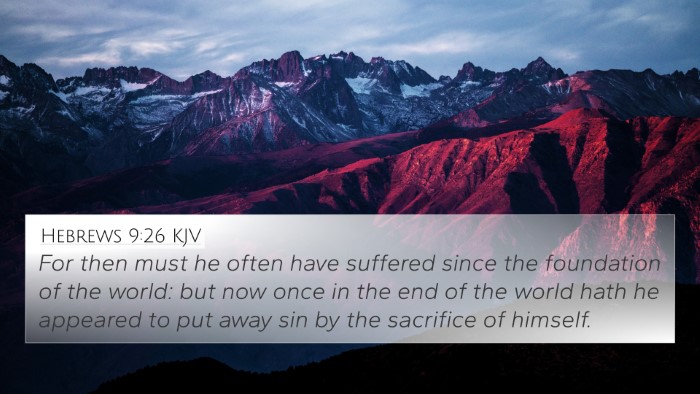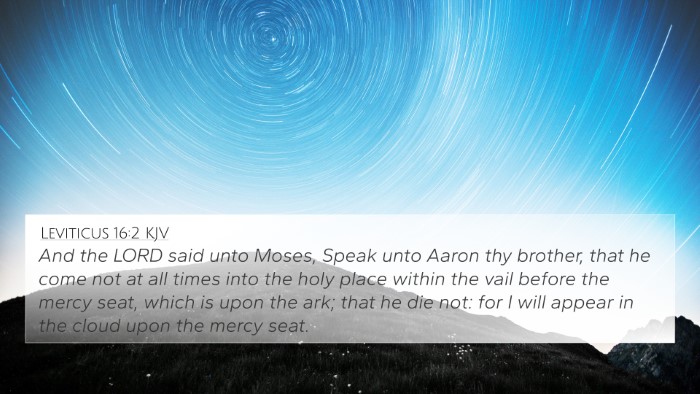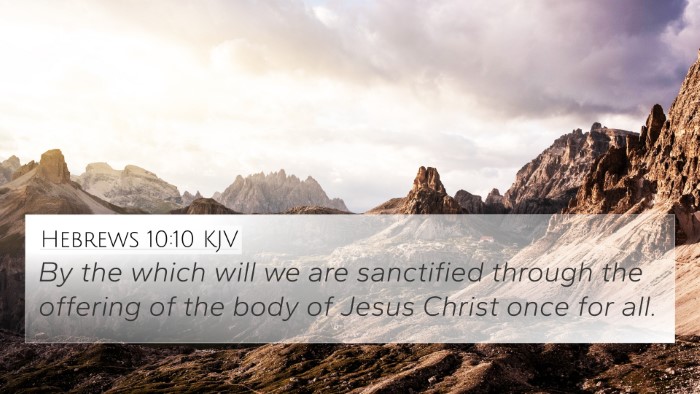Understanding Hebrews 9:25
In Hebrews 9:25, we explore the profound significance of Christ's sacrifice in relation to the sacrificial system of the Old Testament. The verse states, "Nor yet that he should offer himself often, as the high priest entereth into the holy place every year with blood of others." This passage highlights the finality and sufficiency of Christ's offering as opposed to the yearly atonements made by earthly high priests.
Contextual Overview
This verse emerges in a broader discussion of the superiority of Christ's priesthood and His once-for-all sacrifice. Matthew Henry emphasizes that the continual sacrifices of the old covenant serve as a shadow of the perfect sacrifice that Christ would fulfill. Adam Clarke further notes that the repeated nature of the high priest's offerings underlines the temporary and incomplete nature of the old covenant, thus necessitating the ultimate sacrifice of Jesus.
Thematic Connections
Understanding Hebrews 9:25 requires exploring its thematic connections with other scripture. Below are notable cross-references that illuminate the relationship between this verse and the rest of the Biblical narrative:
- Hebrews 7:27: "Who needeth not daily, as those high priests, to offer up sacrifice, first for his own sins, and then for the people’s: for this he did once, when he offered up himself."
- Hebrews 10:1: "For the law having a shadow of good things to come, and not the very image of the things, can never with those sacrifices which they offered year by year continually make the comers thereunto perfect."
- Romans 6:10: "For in that he died, he died unto sin once: but in that he liveth, he liveth unto God."
- 1 Peter 3:18: "For Christ also hath once suffered for sins, the just for the unjust, that he might bring us to God..."
- Exodus 30:10: "And Aaron shall make an atonement upon the horns of it once in a year with the blood of the sin offering of atonements: once in the year shall he make atonement upon it throughout your generations: it is most holy unto the Lord."
- Leviticus 16:34: "And this shall be an everlasting statute unto you, to make an atonement for the children of Israel for all their sins once a year..."
- John 1:29: "Behold the Lamb of God, which taketh away the sin of the world."
Cross-Referencing Biblical Texts
When engaging in cross-referencing Biblical texts, we uncover the interconnectedness of God’s salvation plan. The above verses illustrate how the New Testament draws direct contrasts to the sacrificial system described in the Old Testament, showing Jesus as the ultimate and perfect atonement. Albert Barnes notes that these themes provide deep insight into God’s purpose in redemption, demonstrating continuity and fulfillment throughout scripture.
Connections Between Bible Verses
By examining the connections between Bible verses, particularly those related to sacrifices and priesthood, we can better understand the depth of Christ's sacrifice. The verse serves as a critical point in “linking Bible scriptures” around the need for a greater priest who offers a perfect sacrifice once and for all.
Comparative Bible Verse Analysis
A comparative analysis of Hebrews 9:25 with other verses reveals a pattern of progressive revelation regarding atonement. The contrast with the Old Testament practices, as seen in the cross-references provided, illustrates the inadequacy of the former system while confirming the efficacy and finality of Christ's sacrifice.
Conclusion
In summary, Hebrews 9:25 encapsulates the theological weight of Christ’s sacrificial work compared to the old covenant sacrifices provided by the priests. The insights drawn from public domain commentaries highlight the importance of understanding this verse within its biblical context, showing how it enriches our understanding of atonement and the person of Jesus Christ.
As we further explore tools for Bible cross-referencing and examine thematic connections within the scriptures, we gain a deeper appreciation for the unity of God’s redemptive plan across both the Old and New Testaments.
